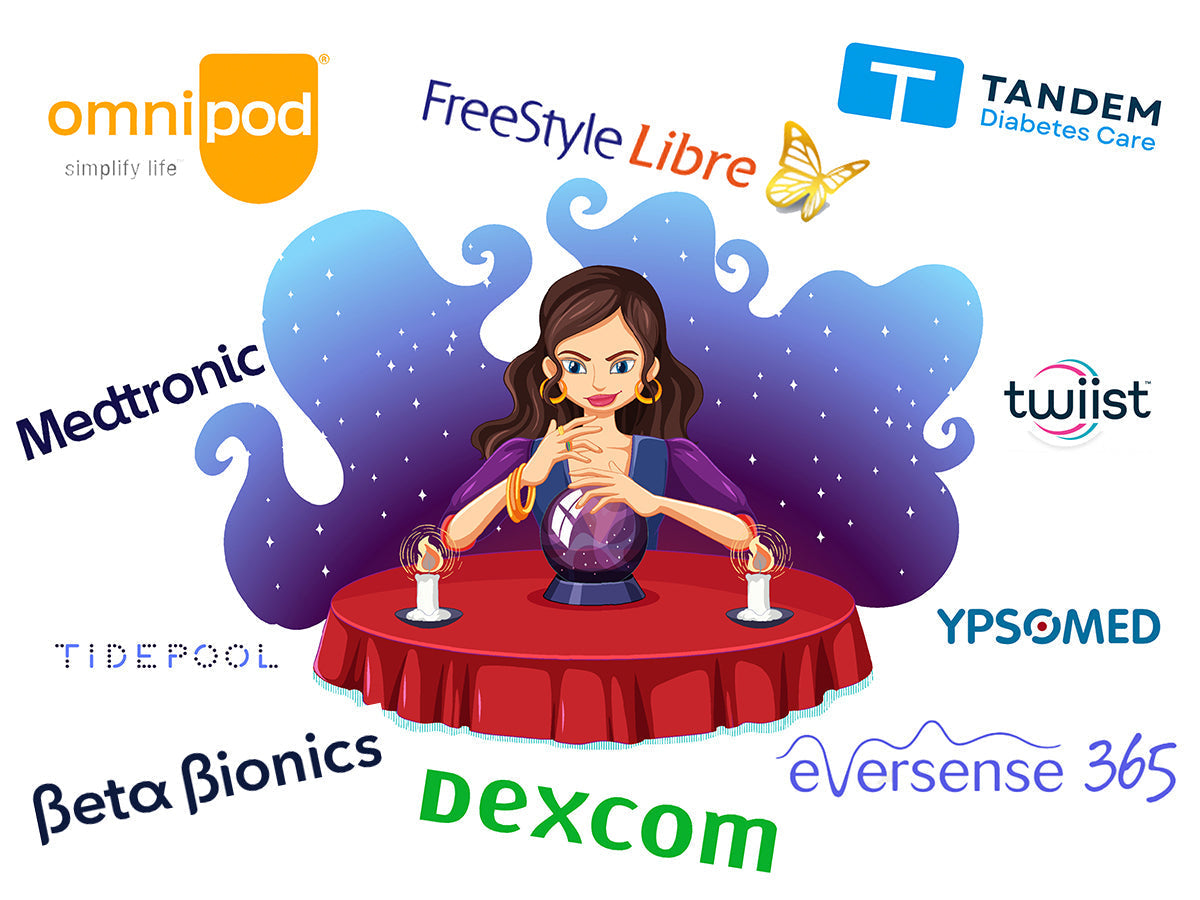
| Blogs and publications on this website are independent of any involvement by medtech companies or diabetes related charities. To ensure there is no bias, we do not accept any products, freebies or other material from any medtech provider. All materials are copyright©️Love My Libre Ltd. |
***
This article is about reasonable adjustments that your employer should probably be making to ensure you’re not being discriminated against. And this includes addressing the issue of whether a smartphone used to scan a sensor should be permitted in the workplace.
I should start by stating that this is not legal advice but is written by an employment law specialist. I’ve given you some avenues to look into if you need more specific information or formal advice, but I hope this overview will be informative and, if needed, provides the starting point for a conversation.
Disability
In a previous blog I’ve covered the fact that lots of people with diabetes don’t consider themselves as ‘disabled’, however, if you inject insulin on a long-term basis – which pretty much applies to all type 1s, and some type 2s - then you will meet the criteria of having a disability for the purposes of the Equality Act 2010 (see below). Having met this criteria means that your disability (ie. diabetes) is a protected characteristic and that discrimination on the grounds of your disability is against the law.
Legislation
The key laws[1] in terms of diabetes in the workplace that you (and your employer) need to be aware of are the Equality Act 2010 – which incorporated the Disability Discrimination Act sometimes mistakenly referred to on Facebook forums - and the Health and Safety at Work etc. Act 1974.
Many employers do not properly understand these laws and its commonplace to assume that it only applies to physical disabilities, where the person declares themselves as disabled. But there’s an important distinction to make here, having a disability is not the same as being labelled “disabled”. Many of us with diabetes will shy away from ticking this box. However, it shouldn’t be seen as a weakness to need reasonable adjustments to enable you to be on a level playing field to your workplace colleagues and it’s best to be upfront with your employer.
Once an employer is aware of a disability the onus is on them – not you! – to make suitable reasonable adjustments. And if the employer does nothing, knowing or even suspecting that you have a disability, then they are potentially liable for their own failure to address discrimination!
[1] Legislation applicable in the UK.
Reasonable adjustments
Employers must consider making reasonable adjustments to ensure a person with a disability is not disadvantaged in the workplace, and if there is a provision, practice or criteria i.e. workplace policy, that adversely affects the person with a disability (eg. type 1 diabetes), then this might be indirect discrimination and is unlawful under the Equality Act.
There is no set definition of what is 'reasonable' and if an employer rejects a request for adjustments, they should say why, otherwise this itself could be discriminatory. Employers do not have to accept reasonable adjustments put forward by employees, however, if the issue came to an Employment Tribunal, the employer would have to explain their reasoning for rejecting your suggestions. The emphasis is on the steps that the employer has taken, or considered, to remove or reduce any barriers that you face.
The best approach for an employer is to discuss appropriate reasonable adjustments with their employees so that they understand their condition and can properly consider what changes might be appropriate. You shouldn’t hide your condition or have to make changes to your routine or regimen, unless you want to.
It’s important that employers treat reasonable adjustments as applying to an individual and that not every person with the condition will have the same needs and that these can also change on a daily basis too.
Your employer cannot pass the cost of making reasonable adjustments on to you.
Reasonable adjustments are about making changes so that you have the same opportunity to do your job effectively as others. This could mean removing physical barriers or providing extra support in another way. Reasonable adjustments should be accommodated by employers at the interview and selection stages for a job applicant as well as to those employees that it knows have a “disability”. |
Risk assessment
Health and Safety law puts an onus on employers to take reasonable steps to ensure the safety of their employees and this includes both their physical and mental wellbeing . However, there is no requirement for an employer to carry out a separate risk assessment for a type one but there is an onus on the employer to ensure that risks related to an individual employee are identified and appropriate measures taken. This includes assessing whether a disability poses a risk to the health of either yourself or others.
If you rely on a smartphone for alarms as a medical device, then your employer should be informed of this purpose and this should be reflected in a risk assessment. This will be particularly pertinent if you do not have hypo awareness.
Policies and phones in the workplace
When managing an employee with a disability and there is a disadvantage that they experience compared to a person who does not have a disability, employers are expected to look for other options rather than stick rigidly to their rules and policies.
In the case of the use of phones in the workplace this is often included as standard policy in a staff handbook and there are various reasons that employer’s use to justify their stance, most often it relates to concerns with the use of a camera or data protection. Occasionally having a smartphone on a person is limited for health and safety reasons.
It does not make any difference that the employer intended the policy to disadvantage you or not. The issue is whether or not applying a blanket policy can be justified and to justify their position an employer needs to have considered if there are any alternatives.
When using a phone for scanning, the app (not just the sensor) you use to get glucose readings is classified as being a medical device. |
Alternatives to a phone ban
These are some suggestions ...
- Allow the person with diabetes to use their smartphone for medical purposes (with unlimited access).
- Allow the person with diabetes to use their smartphone for medical purposes within the workplace on a trial basis. Remember to agree a process for review.
- Agree a location within the workplace where a phone can be accessed for medical purposes. Bear in mind that if alarms are used this will need to be within approximately 6 metres. It may also be appropriate to agree how the phone is secured at this location.
- Allow another person in the workplace eg. manager to have access to the smartphone so it can be used by the person with diabetes for medical purposes at appropriate times and regular intervals to check glucose levels.
- Agree that the person with diabetes can access their belongings or locker to check their glucose levels at regular intervals on their smartphone.
- Make arrangements with security or IT staff, or other tech solution, for appropriate checks on smartphones to enable the use of a smartphone as a medical device.
Of course, the employer could always review the need for the policy and apply a more relaxed approach to allow employees to access smartphones in the workplace, subject to certain conditions.
Other options
These are some suggestions of other ways that reasonable adjustments could be made that may enable the user to check their glucose levels.
- Allow the employee to work from home.
- Change the location of the job role being carried out (within the business).
- Change the job role so that the person with diabetes is able to carry a phone with them whilst carrying out their work.
Starting a conversation
You do not have to tellyour employer that you have a disability, although it is usually best to inform them of a disability if it is likely to affect you whilst at work and your ability to carry out your role. Informing an employer and providing them with relevant information about your condition and diabetes management can facilitate a conversation about your needs and changes that the employer may need to make. It may also bring up issues that need consideration in terms of workplace health and safety.
It is a good idea to arrange a meeting with your employer for the following reasons:
- to explain the medical condition and how this affects your worklife;
- to enable your employer to understand how they can help or make reasonable adjustments;
- to enable your employer to plan and take any necessary other actions eg. provision for dealing with hypos;
- to discuss and agree on possible adjustments together.
If you reach an agreement for any adjustments, it’s advisable to put these details in writing with a copy kept on your personal file. Several trade unions now suggest that employer’s agree a Reasonable Accessibility Passport.
Note: Larger companies may refer you to an occupational health team/company for assessment and to give them advice on reasonable adjustments.
Summary
- The key laws relating having diabetes and managing at work are the Equality Act 2010 and the Health and Safety at work etc. Act 1974.
- Type 1 is recognised in case law as meeting the criteria as a ‘disability’ under the Equality Act and those meeting this criteria must not be discriminated against on the grounds of disability.
- The requirement for reasonable adjustments arises once an employer knows, or has reasonable notice – even an indication can suffice - that you have a qualifying disability.
- Policies should be adjusted where these put a person with a protected characteristic at a disadvantage. This could include a company mobile phone policy.
-
If you are treated worse due to your protected characteristic ie. having type 1 diabetes, it is unlawful direct discrimination whether or not your employer has a reason for it.
- When using LibreView to monitor your glucose levels you are actually using the app as a classified medical device.
Getting help and support
ACAS (Advisory, Conciliation and Arbitration Service)
If you have a workplace problem, ACAS can help talk you through your options and inform you regarding employers’ rights. They do not give an opinion or legal advice.
Helpline: 0300 123 1100
Website:https://www.acas.org.uk
Equality Advisory and Support Service (EASS)
Independent advice for individuals on issues relating to equality and human rights, across England, Scotland and Wales.
Helpline: 0808 800 0082
Website: http://www.equalityadvisoryservice.com
Health and Safety Executive
Further information on health and safety in the workplace is available online.
Website: https://www.hse.gov.uk/disability
____________________
Disclaimer:
Love My Libre is not associated or affiliated with Abbott or FreeStyle Libre. Content here and on our website www.lovemylibre.com does not constitute medical advice or replace the relationship between you and healthcare professionals nor the advice you receive from them.
The author of this blog has type 1 diabetes and uses the FreeStyle Libre 2 which is provided on NHS prescription.
FreeStyle Libre is a registered trademark of Abbott Diabetes Care Inc.
This blog does not contain legal advice and is for general information only. You should consult a qualified professional if you need advice in relation to your own circumstances.







Leave a comment (all fields required). Please note, we are unable to respond to individual comments posted here.